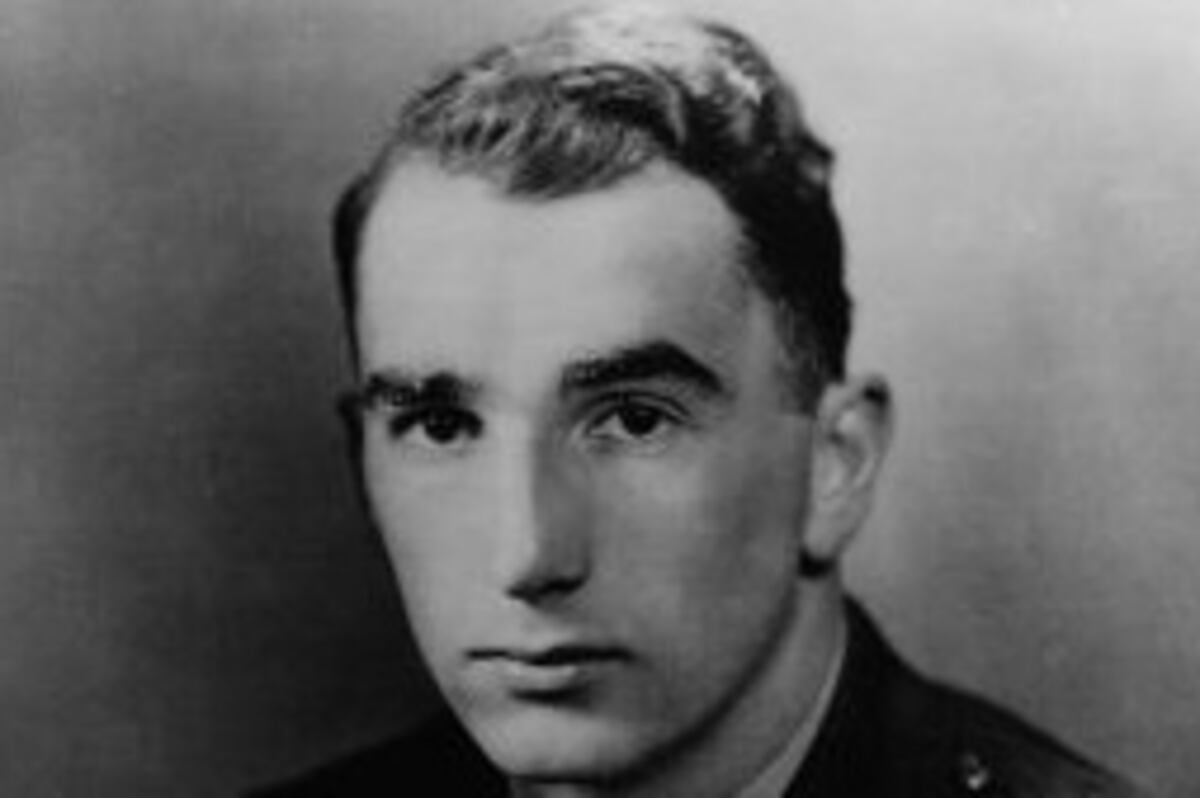World
John Koelsch: First Helicopter Pilot to Receive Medal of Honor

The legacy of John Koelsch, the first helicopter pilot to receive the Medal of Honor, is marked by remarkable bravery during the Korean War. His actions not only showcased the potential of rotary aircraft in combat but also emphasized the human spirit’s resilience in the face of adversity.
Koelsch was born on December 22, 1923, in London, England, to American parents. The family relocated to Briarcliff Manor, New York, when he was just a year old. He began his collegiate journey at Princeton University on September 1, 1941, but his studies were interrupted when the United States entered World War II. He enlisted in the United States Naval Reserve on September 14, 1942, where he trained as a pilot and earned his commission as an ensign on October 23, 1944.
After serving in the Pacific and flying TBM Avengers, Koelsch returned to Princeton, earning his degree in 1949. He initially aspired to pursue a career in law, but the outbreak of the Korean War on June 25, 1950, prompted him to switch from reserve to active duty. This shift led him to become a helicopter pilot, where he would make history.
While stationed aboard the USS Princeton, Koelsch demonstrated exceptional resourcefulness, rescuing fellow crew members and innovating devices to assist in operations during the harsh winter conditions in Korea. His ingenuity culminated in the development of a floating sling hoist, which played a crucial role in the mission that ultimately earned him the Medal of Honor.
On July 3, 1951, while piloting a Navy helicopter, Koelsch received distress signals regarding Marine Captain James V. Wilkins, whose Vought F4U Corsair had been hit by North Korean anti-aircraft artillery. Without any armament or fighter escort, Koelsch and his crewmate, Petty Officer 3rd Class George Neal, bravely ventured into enemy territory. Despite the overcast skies and heavy ground fire, they located Wilkins, who had sustained severe injuries.
Neal descended on the rescue device to assist Wilkins, exposing himself to enemy fire. As Koelsch attempted to lift off with the rescued Marine, their helicopter was struck and crashed on a mountaintop. Remarkably, neither Koelsch nor Neal sustained serious injuries. Over the following nine days, Koelsch cared for Wilkins using limited resources until they were ultimately captured by North Korean forces.
During their time as prisoners, Koelsch managed to persuade one of his captors to provide medical treatment for Wilkins’ wounds. In contrast, Koelsch and Neal endured harsh interrogations, yet they remained steadfast and did not divulge any critical information. Following the signing of the armistice at Panmunjom on July 27, 1953, Neal and Wilkins were released among the surviving UN prisoners of war, but Koelsch was not.
Tragically, records indicate that Koelsch succumbed to malnutrition and dysentery on October 16, 1951. His bravery and commitment to his mission ensured that the men he set out to rescue ultimately made it home. On August 3, 1955, Koelsch was posthumously awarded the Medal of Honor, making him the first helicopter pilot to receive this prestigious recognition. He was also honored with the Purple Heart and the POW Medal.
In a testament to his legacy, the destroyer escort Koelsch (DE-1049) was named in his honor, later redesignated as a missile frigate in 1975. His partner, Neal, who made significant contributions as one of the first Black helicopter crewmen in the Navy, received the Navy Cross for his valor. Neal passed away on December 1, 2016, at the age of 86, and both he and Koelsch now rest at Arlington National Cemetery.
John Koelsch’s story is a poignant reminder of the sacrifices made by those in military service and the evolving role of aviation in warfare. His contributions to helicopter operations have paved the way for future generations of pilots, highlighting the courage that defines the spirit of those who serve.
-

 Science4 weeks ago
Science4 weeks agoIROS 2025 to Showcase Cutting-Edge Robotics Innovations in China
-

 Lifestyle4 weeks ago
Lifestyle4 weeks agoStone Island’s Logo Worn by Extremists Sparks Brand Dilemma
-

 Health4 weeks ago
Health4 weeks agoStartup Liberate Bio Secures $31 Million for Next-Gen Therapies
-

 World4 weeks ago
World4 weeks agoBravo Company Veterans Honored with Bronze Medals After 56 Years
-

 Politics4 weeks ago
Politics4 weeks agoJudge Considers Dismissal of Chelsea Housing Case Citing AI Flaws
-

 Lifestyle4 weeks ago
Lifestyle4 weeks agoMary Morgan Jackson Crowned Little Miss National Peanut Festival 2025
-

 Health4 weeks ago
Health4 weeks agoTop Hyaluronic Acid Serums for Radiant Skin in 2025
-

 Science2 weeks ago
Science2 weeks agoUniversity of Hawaiʻi at Mānoa Joins $25.6M AI Initiative for Disaster Monitoring
-

 Top Stories4 weeks ago
Top Stories4 weeks agoIndonesia Suspends 27,000 Bank Accounts in Online Gambling Crackdown
-

 Science4 weeks ago
Science4 weeks agoArizona State University Transforms Programming Education Approach
-

 Sports4 weeks ago
Sports4 weeks agoYamamoto’s Mastery Leads Dodgers to 5-1 Victory in NLCS Game 2
-

 Sports4 weeks ago
Sports4 weeks agoMel Kiper Jr. Reveals Top 25 Prospects for 2026 NFL Draft









